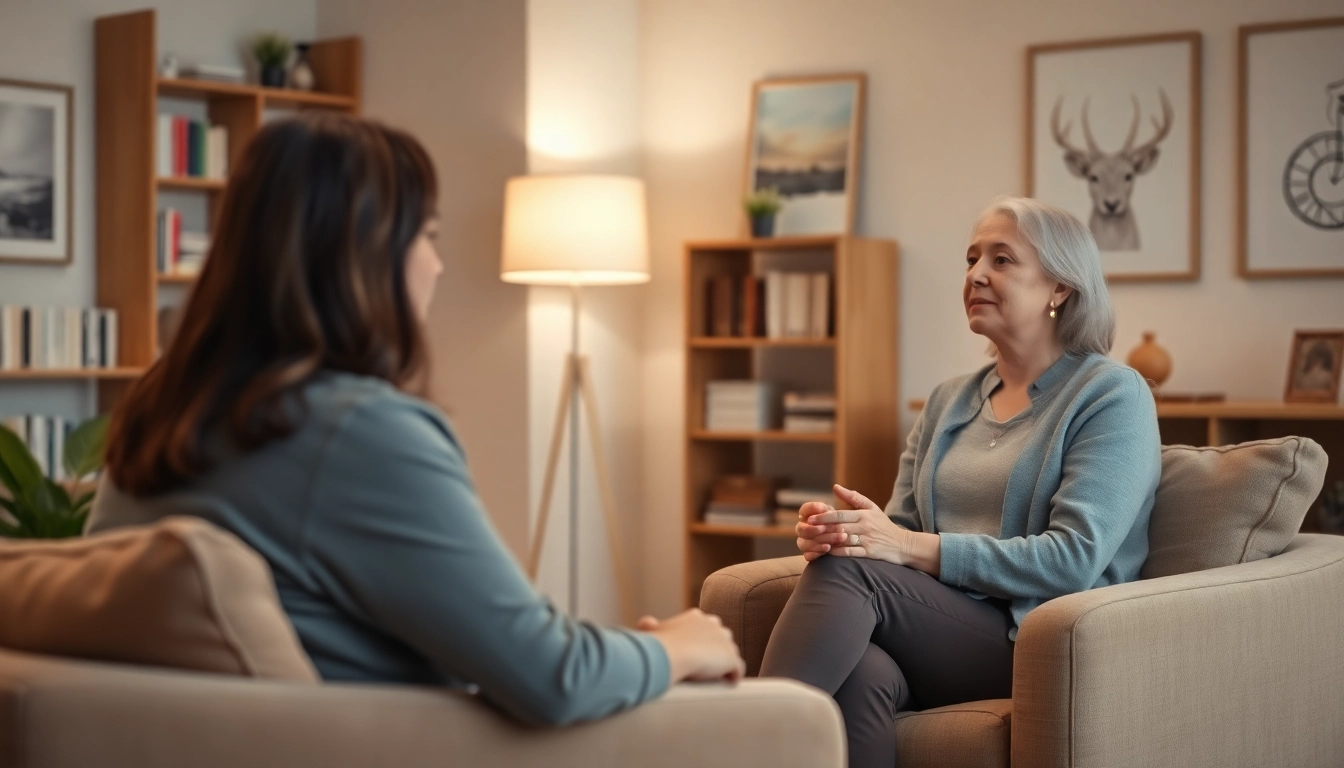What is Attachment Theory?
Attachment theory is a psychological framework that explores the dynamics of interpersonal relationships, particularly the bonds formed between individuals from early childhood. Understanding attachment theory is crucial for mental health professionals and anyone interested in the psychological underpinnings of human behavior. It emphasizes the importance of early relationships, typically those with caregivers, in shaping an individual’s emotional responses and relational patterns throughout life. This foundational theory can provide insights into various issues, from anxiety disorders to relationship difficulties. Becoming familiar with an attachment theory specialist can significantly enhance one’s understanding and management of these dynamics.
History and Development of Attachment Theory
Attachment theory was first proposed by British psychologist John Bowlby in the mid-20th century. It was developed after his observations of children who were separated from their parents during World War II and focused on the critical role of the caregiver-child relationship. Bowlby posited that the bond formed in these early years is foundational, influencing an individual’s emotional development and their relationships throughout life.
The work of Mary Ainsworth, Bowlby’s collaborator, further expanded attachment theory with her innovative “Strange Situation” experiment. This study classified attachment styles into three categories: secure, anxious, and avoidant. Over the decades, this framework has evolved to encompass a broader range of attachment styles and the ways they manifest in adult relationships, providing therapists with vital tools for understanding client behaviors.
Key Concepts of Attachment Styles
Attachment styles classify how individuals relate to others based on their early interactions with caregivers. The primary attachment styles identified are:
- Secure Attachment: Characterized by trust, a positive view of self and others, and healthy interpersonal relationships. Individuals with secure attachments are usually comfortable expressing their emotions and seeking support.
- Anxious Attachment: These individuals often worry about their relationships, feel insecure, and may seem dependent on others for emotional support. They frequently express their needs and fears, sometimes leading to clinginess.
- Avoidant Attachment: This style involves emotional distance and an unwillingness to engage deeply with others. Avoidant individuals may struggle with intimacy and rely heavily on self-sufficiency.
- Disorganized Attachment: A combination of anxious and avoidant styles, often rooted in fear or trauma, leading to a chaotic, unpredictable approach to relationships.
Importance of Understanding Attachment in Therapy
Understanding attachment styles is essential in therapy because they influence how individuals respond to emotional distress, develop relationships, and process trauma. Insight into these patterns allows therapists to tailor their approaches, address relational conflicts, and guide clients towards healthier interactions and emotional responses.
Identifying an Attachment Theory Specialist
Finding the right attachment theory specialist can be pivotal for therapeutic progress. These professionals are specifically trained to apply attachment theory principles in treatment. Knowing what qualifications and characteristics to look for can facilitate a more fruitful search.
Qualifications and Training for Attachment Theory Specialists
An attachment theory specialist should possess relevant qualifications, which often include advanced degrees in psychology, social work, or counseling, along with specialized training in attachment-focused models of therapy. Some may have certifications in specific branches of therapy such as Emotionally Focused Therapy (EFT) or Attachment-Based Family Therapy.
Continuous education and workshops focused on the latest research and therapeutic techniques related to attachment are also important criteria when assessing a specialist’s competency. Attending seminars or being part of professional networks can enhance their capabilities in dealing with various attachment-related challenges.
How to Find an Attachment Theory Specialist Near You
Locating an attachment theory specialist can be done through several avenues:
- Online Directories: Websites like Psychology Today offer comprehensive listings of therapists, allowing you to filter by specialty, including attachment-based therapy.
- Referrals: Asking for recommendations from healthcare providers, friends, or family can be effective, as personal testimonials can play a significant role in gauging suitability.
- Professional Organizations: Organizations dedicated to mental health often provide resources for finding specialists in attachment theory. These listings typically include details about their training, areas of expertise, and practice locations.
Questions to Ask When Choosing a Specialist
Once you have identified potential candidates, it’s crucial to ask the right questions to ensure they align with your needs:
- What is your training and experience in attachment-based therapies?
- How do you incorporate attachment theory into your therapeutic practice?
- Can you provide examples of how this approach has helped clients?
- What is your approach to building trust and safety within the therapeutic relationship?
The Therapeutic Approach of Attachment Theory Specialists
The therapeutic techniques employed by attachment theory specialists often extend far beyond just the application of attachment theory itself, integrating various methodologies to support their clients effectively.
Core Techniques Used in Attachment-Based Therapy
Attachment-based therapy utilizes numerous core techniques tailored to foster healing and promote secure attachments:
- Emotionally Focused Therapy (EFT): A powerful, evidence-based approach designed to help couples reconnect and foster a secure emotional bond.
- Attachment-Based Family Therapy: This technique focuses on strengthening familial bonds and encouraging open communication, often necessary for healing within troubled families.
- Mindfulness Practices: Therapists often incorporate mindfulness techniques to help clients regulate emotions and remain present in their interactions.
- Imago Therapy: Used primarily in couple therapy, this technique encourages partners to explore their childhood messaging regarding relationships, promoting understanding and healing.
Coping Strategies for Different Attachment Styles
Understanding one’s attachment style can empower individuals to implement coping strategies that lead to healthier relationships:
- For Anxious Individuals: Techniques like self-soothing practices and establishing clear communication boundaries can help manage feelings of insecurity and anxiety in relationships.
- For Avoidant Individuals: Learning to express emotions, practice vulnerability, and challenge avoidance behaviors fosters deeper connections over time.
- For Disorganized Individuals: Structuring their environments through consistent support and therapy can mitigate the chaos often felt within relationships.
The Role of the Therapist-Client Relationship
Trust and safety within the therapeutic relationship are paramount. Attachment theory specialists focus on creating a secure base for clients, allowing them to explore their thoughts and feelings safely. This secure attachment with the therapist itself becomes a model for the client to understand and replicate in their personal relationships.
Benefits of Working with an Attachment Theory Specialist
Seeking therapy from an attachment theory specialist can yield numerous benefits, significantly impacting clients’ emotional well-being and relational dynamics.
Improving Emotional Regulation and Relationships
Individuals who work with attachment theory specialists often learn how to effectively regulate their emotions and improve their interpersonal relationships. By recognizing patterns derived from attachment styles, clients can learn to respond more thoughtfully instead of reactively, significantly enhancing their emotional intelligence.
Building Secure Attachments in Therapy
The process of therapy itself can help clients develop secure attachment styles. As they navigate their experiences with a professional, they often feel supported, understood, and validated. These secure interactions provide a model for future relationships, enhancing their ability to form healthy connections.
Case Studies: Success Stories
Numerous success stories highlight the effectiveness of attachment theory specialists:
- A young adult with anxiety related to their upbringing found purposeful strategies to manage relationships through cognitive restructuring and effective communication skills, eventually feeling secure in their partnerships.
- A couple in therapy learned to navigate their respective avoidant and anxious styles, leading to improved communication, emotional safety, and a stronger bond after months of dedicated work with an attachment specialist.
Moving Forward: The Future of Attachment Theory in Therapy
The field of attachment theory continues to evolve, integrating new research findings and technologies to enhance therapeutic practices.
Integration of New Research and Techniques
As research develops, attachment theory specialists are increasingly integrating advancements in neuroscience and developmental psychology into their practices. These insights refine their understanding of how attachment impacts behavior and emotional health, enabling them to apply more tailored and effective interventions.
The Role of Technology in Therapy Practices
Technology has also begun to play a role in attachment-based therapy, with telehealth becoming more common. Remote therapy sessions enable greater accessibility and can help with overcoming geographical barriers for clients seeking specialized attachment support.
Evolving Understanding of Attachment Across the Lifespan
Emerging studies are uncovering how attachment impacts individuals not just in childhood but throughout their lifespan. Understanding this can offer objectivity in therapeutic practices, enabling specialists to assist clients coping with complex relationships at various life stages.



